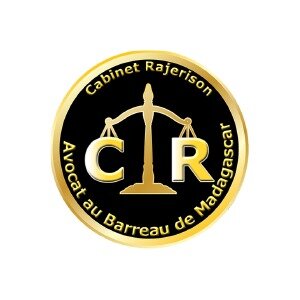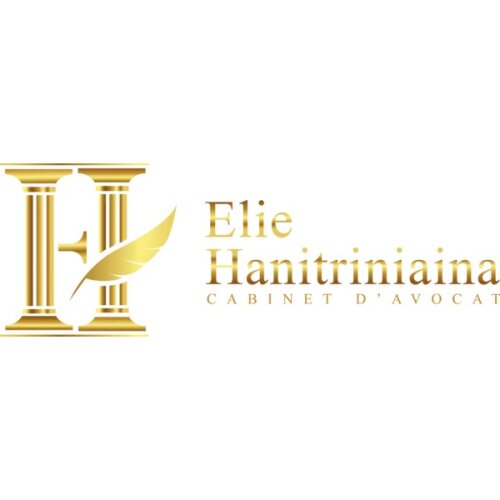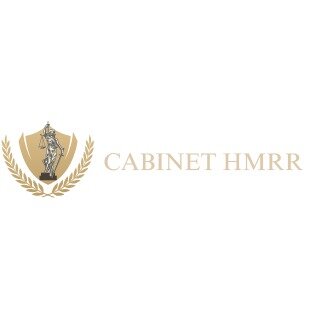Best Water Law Lawyers in Madagascar
Share your needs with us, get contacted by law firms.
Free. Takes 2 min.
Or refine your search by selecting a city:
List of the best lawyers in Madagascar
About Water Law in Madagascar
Water Law in Madagascar refers to the legal frameworks and regulations governing the ownership, management, distribution, and use of water resources throughout the country. The aim is to ensure equitable access, sustainable usage, and protection of water resources for domestic, agricultural, industrial, and environmental needs. With a diversity of climates and water availability across Madagascar, laws are in place to address the complex challenges of water scarcity, pollution, and the need for effective resource sharing.
Why You May Need a Lawyer
People often seek legal assistance in Water Law due to water rights disputes, regulatory compliance issues, licensing for water use, conflicts between land and water use, environmental protection concerns, or disagreements with government actions affecting water supply. A lawyer can help individuals, businesses, and communities interpret the law, resolve conflicts, ensure permits are obtained, handle litigation, and advocate for the fair allocation of water resources.
Local Laws Overview
The legal system in Madagascar treats water as a strategic national resource. The principal law is the Water Code, which sets out the state's ownership of water resources while also recognizing legitimate user rights. Key aspects include:
- State Ownership and Use Rights - The state retains ownership of water but can grant use rights through permits or authorizations.
- Permits and Licensing - Activities such as irrigation, large-scale water extraction, or industrial use require official permits managed by the relevant Ministries.
- Prioritization of Uses - Domestic water supply and public health are prioritized over industrial or commercial uses.
- Protection Against Pollution - Strict regulations prevent the discharge of pollutants into water bodies, with penalties for non-compliance.
- Community and Traditional Rights - Some customary practices are recognized, particularly regarding community-managed water sources, but are subject to compliance with national law.
- Integrated Water Resource Management - Madagascar follows principles that promote coordinated development and management of water, land, and related resources.
Frequently Asked Questions
What is the legal status of water resources in Madagascar?
All water resources, including rivers, lakes, and groundwater, are owned by the state. Individuals and entities can obtain rights to use water under certain conditions.
Do I need a permit to use water for agriculture or business?
Yes, a permit from the relevant authorities is required for agricultural, commercial, industrial, or large-scale water extraction and usage.
How are water rights allocated among users?
The government allocates water rights with consideration to priority uses, historical rights, sustainability, and needs of local communities.
What can I do if my access to water is being restricted by another party?
You can seek legal advice or submit a complaint to the local authorities. Mediation or court action may be pursued if disputes are not resolved administratively.
Are there rules against polluting water bodies?
Yes, strict laws prohibit the discharge of harmful substances into water bodies. Violators may face fines, cleanup requirements, or criminal penalties.
Can traditional community water use practices continue within the law?
Customary use is recognized in some cases, provided it does not conflict with public health, environmental protection, or national regulations.
What government authority manages water permits and disputes?
The Ministry of Water, Sanitation, and Hygiene is the main authority, working with regional and local administrations for permitting and dispute resolution.
Is it possible to buy or sell water rights?
Water rights are not privately owned and cannot be sold. Use rights may be transferred under certain conditions with government approval.
What if a development project threatens my water supply?
Affected parties can raise objections with the relevant authorities, request impact assessments, or seek court intervention to protect their rights.
How can environmental concerns be addressed under Water Law?
Legal provisions allow for environmental impact assessments, public consultation, and enforcement actions to protect ecosystems and water quality.
Additional Resources
If you are dealing with a Water Law issue in Madagascar, the following resources can be useful:
- The Ministry of Water, Sanitation, and Hygiene - The primary government authority for water management and regulation.
- Regional and municipal water management offices - For permits and local concerns.
- Legal aid organizations - May provide assistance for community or individual water rights disputes.
- Environmental non-governmental organizations - Offer advocacy and support on environmental aspects of water law.
- University law clinics and academic centers - Sometimes provide information or access to expertise in water law issues.
Next Steps
If you believe you need legal assistance in a Water Law matter, start by gathering all relevant documents such as permit applications, correspondence, and records of the disputed water use or incident. Clearly outline your situation and the outcome you seek. You can then:
- Contact a lawyer or legal advisor with experience in Malagasy Water Law.
- Reach out to the Ministry of Water, Sanitation, and Hygiene or your local water management office for guidance on regulatory procedures or complaint processes.
- Consider mediation or alternative dispute resolution if recommended by authorities.
- If necessary, initiate formal legal proceedings with the help of your lawyer to assert or defend your rights.
Acting early and seeking informed legal advice can help protect your interests and ensure you comply with Madagascar’s complex water laws.
Lawzana helps you find the best lawyers and law firms in Madagascar through a curated and pre-screened list of qualified legal professionals. Our platform offers rankings and detailed profiles of attorneys and law firms, allowing you to compare based on practice areas, including Water Law, experience, and client feedback.
Each profile includes a description of the firm's areas of practice, client reviews, team members and partners, year of establishment, spoken languages, office locations, contact information, social media presence, and any published articles or resources. Most firms on our platform speak English and are experienced in both local and international legal matters.
Get a quote from top-rated law firms in Madagascar — quickly, securely, and without unnecessary hassle.
Disclaimer:
The information provided on this page is for general informational purposes only and does not constitute legal advice. While we strive to ensure the accuracy and relevance of the content, legal information may change over time, and interpretations of the law can vary. You should always consult with a qualified legal professional for advice specific to your situation.
We disclaim all liability for actions taken or not taken based on the content of this page. If you believe any information is incorrect or outdated, please contact us, and we will review and update it where appropriate.
Browse water law law firms by city in Madagascar
Refine your search by selecting a city.














